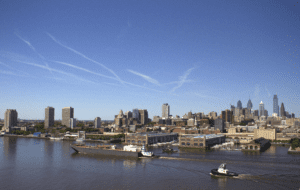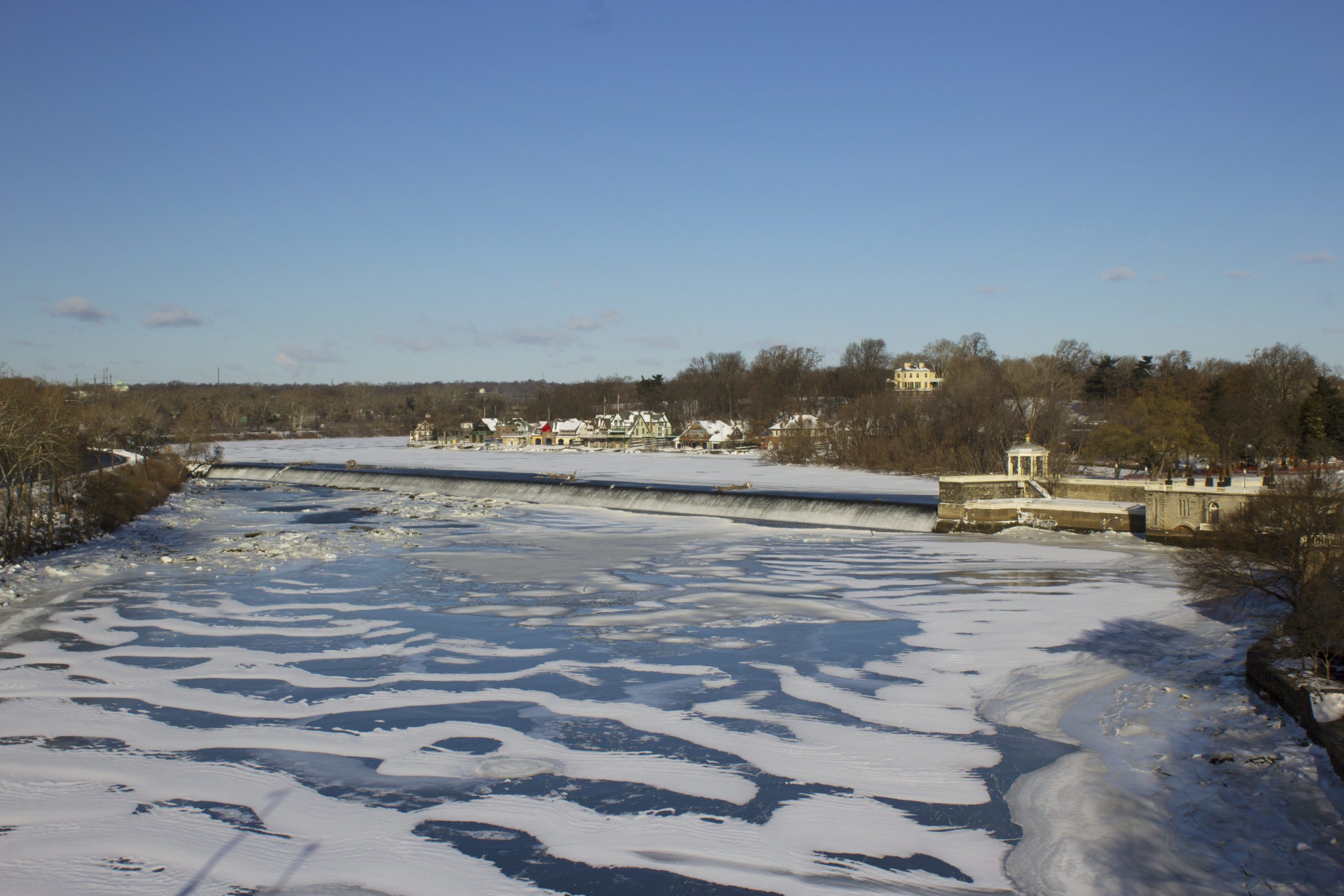
(Feb 07, 2022) Harrisburg, PA The start of a new year provides a unique opportunity to reflect on the past and plan for the future. 2021 was yet another stressful and difficult year for us all. COVID-19 continued to upend almost every aspect of life in America and around the world. In the United States, there seems to be increased anger and pessimism about the future.
For the last three years, I have not seen my Clean Air Council colleagues except through zoom. I really miss them. The Council continues to work remotely – the furthest remote employee is located in Montana! The Council has an amazing staff and I am so impressed by how quickly they adapted to remote work. On the other hand, it is sad how divided America was in 2021, and the bitterness between fellow Americans seems to be growing. But 2021 was also a year of optimism where long-established issues of social injustice started increasingly being addressed despite growing backlash towards change of any kind. Many Americans, businesses and nonprofits are still struggling to understand how to best move forward productively and with optimism. 2022 is a new year, and I pray that healing from the pandemic, economic downturn and our political divide can start early. It is also an election year in which I hope we all do our patriotic duty and vote.
This year will mark my 40th at the Council. At age 67, I still do not want to leave my beloved organization and its critical mission. But I also recognize that sometime in the not far future some young, eager, much more talented person will take my job and continue to grow the Council. One of the issues that the Council staff and board are working on is how to ensure a smooth transition when the time comes for me to retire.
The last few years have been hard for environmental protection. The Trump administration rolled back many of the baseline federal environmental protections that the Council worked for years to secure. At the state level, there were some victories and some defeats. In the last couple of years, Pennsylvania has seen some progress in addressing climate change, yet state elected officials continue to promote policies and subsidies that support the fossil fuel industry. The Council’s top priority is to get the United States and all 50 states to move forward in a meaningful way to address climate change. This requires getting Pennsylvania’s elected leaders to understand the great environmental and economic opportunities provided by the green economy.
The Council has had many achievements since 1967 – when the organization was first created. Today we know so much more about our environment and the devastating impacts of fossil fuel extraction and combustion, which directly fuels the climate crisis and causes devastating public health harms. We know climate change is not only real but already causing serious damage throughout the country and in many Pennsylvania communities. And yet Pennsylvania leaders at all levels of government – while paying lip service to the issue – continue to promote fossil fuel expansion.
I have some optimism that at the federal level we will see some progress in lowering greenhouse gas emissions. But those efforts will likely not be enough, nor will they reflect the amount of reductions needed in the relatively short timespan dictated by the science. In Pennsylvania, now the second largest fossil gas producer in the US, methane and other pollutants endanger the health of residents throughout the state . Meanwhile, new pipelines are tearing through our communities, and irresponsible drilling has resulted in hundreds of spills, tree clearing, seriously harming local communities, and local ecosystems. Yet the state seems to refuse to adequately penalize chronic bad polluters. The state fines them at a level that amounts to chump change for multi-billion dollar companies. Many of these companies have forfeited their social license to operate in Pennsylvania and their permits need to be revoked.
Having chosen to be an environmental advocate in Pennsylvania, I have no choice but to be an optimist. I believe 2022 will offer new opportunities to block the growing anti-environmentalism among many of our elected officials. Pennsylvanians overwhelmingly want clean air, clean water and protected open spaces. In fact, it is guaranteed in Pennsylvania’s Constitution by the Environmental Rights Amendment (ERA) and, thanks to groups like Clean Air Council and others, Pennsylvania’s Supreme Court has reinvigorated the ERA and ruled that our fundamental environmental rights are enforceable and protected by law.
We have a lot to do in the coming year and, thanks to our supporters, I am convinced we’ll make great strides. Here are the Council’s priorities for 2022:
Work with other environmental groups to overturn the Trump Administration’s rollbacks of federal environmental laws that protect public health and the environment: The Biden administration is still politically moderate but does support moving forward on addressing climate change and using good science in policy development and rule-making. It represents a sea change from the disastrous prior administration and, believe it or not, represents the most aggressive climate policy approach from any White House in history.
Ensure enforcement of rules and regulations that protect public health, quality of life and preservation of ecosystems in Pennsylvania: Pennsylvania is a state that has always been welcoming of extractive industries. Over the last few years, the General Assembly has deliberately underfunded the Department of Environmental Protection so that it cannot fulfill its constitutional obligation to protect public health and the environment through rigorous permit reviews, enforcement of existing laws and regulations, and monitoring of potential polluters.
Pennsylvanians continue to see proposals for new, gigantic gas-fired power plants and pipelines that offer no real benefits to the people of Pennsylvania and will seriously degrade the environment. Groups like Clean Air Council are left to pick up the slack. We are up to the task and are ready to support residents and local groups across the state in raising concerns about proposed fossil fuel projects. The Council has no fear of suing the DEP or any industry if needed to protect public health and the environment. The Council also willingly lends our expertise to DEP as the agency develops and proposes new regulations. Finally, the Council will continue to work with local governments throughout Pennsylvania on developing ordinances that limit where polluting sources can be sited in order to protect public health and fragile ecosystems.
Give voice to environmental justice communities impacted by pollution: It is no secret that some communities are more impacted than others when it comes to being asked to host polluting facilities. Working to bring environmental justice to these communities is a top priority of the Council. The Council’s community organizers, engineers and lawyers help residents ensure that their voices are heard. As one example, the Council’s engineers have developed accurate, low-cost air monitoring devices, designed to be loaned to communities, so concerned residents can monitor air pollution levels where they live, or where their children go to school. The Council, working with local community members, forced Sunoco to reopen its public input process to ensure that community members would have a voice in how the old refinery site should be cleaned up.
Promote the green economy: We need to rapidly shift away from using fossil fuels. The history of fossil fuel extraction in Pennsylvania has left a terrible toll on our state’s environment. I am proud that Clean Air Council is working with local governments big and small throughout Pennsylvania to support them in their move to increase energy efficiency and renewable energy in their communities. The Council will continue to fight against state and local barriers that stand in the way of expanding solar and wind power in Pennsylvania.
Reduce pollution from the transportation sector: Pollution from the transportation sector is a leading cause of air pollution and greenhouse emissions. COVID, in a perverse way, encouraged people to work from home and exercise outdoors. More people were riding bikes than ever before and enjoying the outdoors as pedestrians. As people return to work, though, they are more likely to go back to driving alone, and we will see increased pollution from the transportation sector. Even if people choose to stay remote, more people ordering packages for home delivery will increase demand for diesel fuel to transport goods in heavy-duty trucks. The Council will continue to work at the state and local level to help public transportation recover, expand bicycle and pedestrian facilities, and make it easier to get around without a single-occupancy gasoline-powered car. The Council is involved in working with policy makers and industry to build out electric vehicle infrastructure in an equitable way.
The Council depends on support from the public for all the important work we do. I love hearing feedback from our supporters on how they think the Council is doing, and about more ways we can help protect your right to a healthy environment. Please reach out to members@cleanair.org, and I will look forward to reading your feedback and suggestions!
Sincerely,
Joseph Otis Minott, Esq
Executive Director and Chief Counsel

The Delaware River’s water quality tremendously improved over the past 50 years between Philadelphia and Wilmington. A multitude of fish species including striped bass, the American shad and the endangered Atlantic sturgeon have returned to areas that were once heavily polluted, oxygen-depleted “dead zones.”
However, in recent decades, the Delaware River Basin Commission (DRBC) has been slow to update its water quality standards to adequately protect these rebounding fish populations. Each summer when dissolved oxygen levels, the amount of oxygen in water, dip especially low due to rising water temperatures, increased stormwater runoff, and combined sewer system discharges, the Atlantic sturgeon fails to spawn at successful rates and moves one step closer to extinction.
On March 3, 2021, Clean Air Council submitted the Delaware River Fish Protection Petition to DRBC as part of a coalition including Delaware Riverkeeper Network, PennFuture, Environment New Jersey, and over a dozen other organizations. The petition calls on the DRBC to update its water quality standards, the regulations that limit the amount of pollution permit holders can discharge into the river, for the stretch of river extending from Philadelphia and Camden, NJ to Wilmington, DE to protect aquatic life to the full extent required under the Clean Water Act.
The Clean Water Act mandates that DRBC’s water quality standards must protect all of the aquatic life uses already taking place in the river and that standards must be revised if they fall short of doing so. The coalition’s Delaware River Fish Protection Petition, which complements a previous petition submitted to DRBC by the Delaware Riverkeeper Network in 2013, compiles evidence from DRBC’s own reports and external data to document the aquatic life uses that currently take place in this section of the river but remain unprotected under DRBC’s water quality standards. These existing but unprotected uses include “maintenance and propagation of resident fish and other aquatic life” and “spawning and nursery habitat for migratory fish.” The petition also calls on DRBC to raise its dissolved oxygen standard for this section of the river, which DRBC hasn’t adjusted since before the Clean Water Act of 1972, to a level that can adequately support these uses and prevent rebounding fish populations from declining.
The petition calls on DRBC to take swift action by highlighting the urgent need to protect the Delaware River’s genetically unique and endangered population of Atlantic sturgeon, and complements the Safe and Healthy Delaware River Petition, which Clean Air Council submitted to DRBC as part of a coalition in March 2020. The Safe and Healthy Delaware River Petition calls for DRBC to tighten its water quality standards for the section of the river between Northeast Philadelphia and the city of Chester to protect the health of everyone who enjoys “primary contact recreation” activities such as kayaking and canoeing.
Together, these two petitions strongly urge DRBC to comply with the Clean Water Act immediately to protect aquatic life and ensure that future generations can safely enjoy a clean Delaware River.
For more information, contact Jack Byerly, Advocacy Coordinator at jbyerly@cleanair.org

